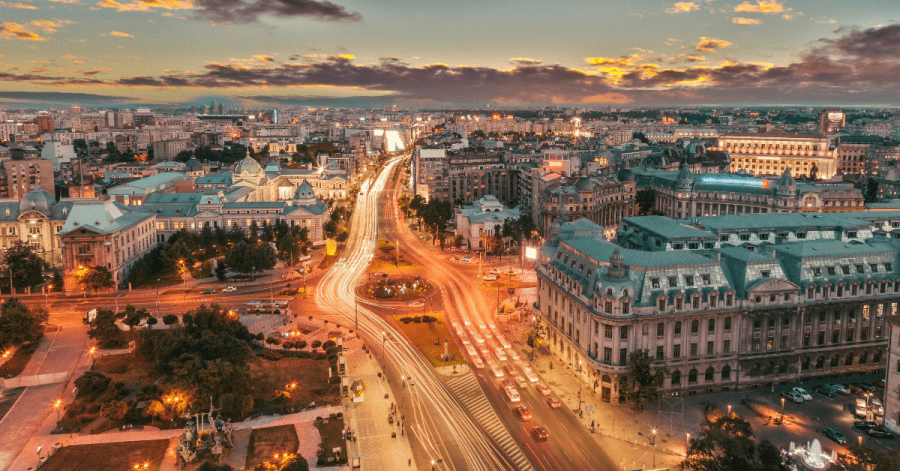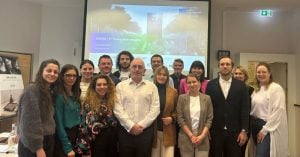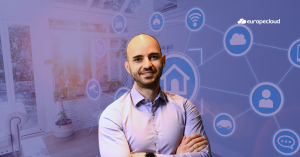Starting October, Brasov-based Iceberg+, a company offering services in consultancy, startups, and technology transfer, will represent the new European Institute of Innovation and Technology (EIT) Urban Mobility hub in Romania. Other partners in the project are Spherik Accelerator and The Romanian Federation of Metropolitan Areas and Urban Agglomerations. The Recursive talked to Ionut Tata, CEO of Iceberg+, to find out what startups stand to gain from their local partnerships with EIT.
Focus on accelerating urban mobility startups
The development of the new hub follows after Iceberg+ joined the EIT Urban Mobility network in January 2021. Across its 8 communities, EIT brings together universities, research institutes, and companies to form cross-sector partnerships.
By joining the EIT Urban Mobility innovation ecosystem, Iceberg+ gained access to opportunities for collaboration aimed at transforming urban mobility in Romania. And since October, Iceberg+ has become the national hub for EIT Urban Mobility in Romania, with offices in Bucharest, Brasov, and Cluj. The hub aims to raise awareness of urban mobility innovations and equip startups with knowledge, networking, and access to funding among others.
Local challenges with urban mobility vary greatly, from severe congestion in overcrowded cities with poor infrastructure, to a transportation system that heavily contributes to carbon emissions. IN fact, urban mobility accounts for ~40% of all CO2 emissions road transport – and 25% of all EU GHG emissions.
“We are all well aware of the mobility challenges facing the cities of Romania, and we believe that they can be turned around into opportunities for local startups to emerge and thrive. Through the entry point into the EIT Urban Mobility network we are managing, startups and innovators will have access to acceleration services and mobility living labs run by experienced stakeholders from within the EIT ecosystem,” Ionut tells The Recursive.
The partnership targets innovators looking to improve the quality of life in cities, increase mobility, and decongest traffic in Romanian municipalities, as well as connecting these communities with other major European cities.
Recently, EIT Urban Mobility, Iceberg+ and their partners from Spherik Accelerator launched the first pre-acceleration program for mobility startups in Romania. The goal is to help startups develop the business and identify potential for growth, access the resources, and prepare to apply for opportunities in the EIT Urban Mobility community. Selected startups are undergoing a 2 months program including mentoring sessions, consultancy on access to finance and markets, marketing, legal council, and match-making with ecosystem partners.
Beyond this project, Iceberg+ plans to engage with cities and metropolitan areas to try and replicate the Open Innovation approach that EIT Urban Mobility has implemented in partnership with its network of cities looking for startup-driven solutions for mobility, Ionut added.
Other partnerships for innovation in the local ecosystem
Collaborations between Iceberg+ and EIT communities started back in 2019, as a national hub for Romania of EIT InnoEnergy, a community accelerating sustainable energy innovations. When it comes to startups, EIT InnoEnergy helped power 330+ startups, raise €1.6B funds, and save €809M in energy costs at a global level. In Romania, Iceberg+ has been both supporting and scouting cleantech startups:
“InnoEnergy is currently investing in highly ambitious or very big projects, and if there are such startups in Romania, we can support their entry into the InnoEnergy dealflow”, Ionut Tata told us.
More recently, the company also started representing EIT Manufacturing in Romania, one of the institute’s younger knowledge and innovation communities. With focus on industrial innovation, EIT Manufacturing supports both large manufacturers on their innovation pathway, and connects startups and SME innovators across Europe. In fact, its goals are to create and support 1K startups, attract €325M investment by EIT ventures, and train/upskill 50K people.
“The most comprehensive way for a company to enter the EIT Manufacturing deal flow would be through the BoostUP competition, where we already had a winner from Romania last year. For entrepreneurs developing market ready innovations in fields such as analytics and artificial intelligence, internet of things, simulation and augmented/ virtual reality or manufacturing applications the most appropriate programme is the Gazelle Accelerator,” Ionut said about the opportunities in the program.
Iceberg+ works on different fronts, but places innovation at the core of their projects. When it comes to supporting startup communities, they tackle four key dimensions, Ionut explained. They are mapping out the specific ecosystems of various communities, set up online communities of startups to increase networking and cooperation, and offer support services to prepare startups for calls and opportunities from within the EIT ecosystems. Finally, they are looking to recommend the most mature innovators as partners in EIT-funded projects or networks.








